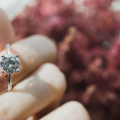Most organizations scale up accountable measures to reduce waste and the best strategy to implement is making by-products of waste materials of different primary components. Environmentalists are knocking the doors of many organizations to reduce their carbon footprints and waste product. In today’s era, the need for sustainable development goals have been introduced and more companies are vigilant towards taking greater steps.
Many companies have developed innovative ways they could make this possible. These companies actually specialize with innovatively manufacturing products using by-products of a number of materials. Here are some examples:
Coconut husk: Coir is usually called coconut husk and its something which usually is discarded as waste after the primary fruit is consumed. But, one company actually specializes in manufacturing an array of coir-based products. Galuku Group Ltd. serves a global market with its large number of coir-based products. The company has researched and developed revolutionary ways by which they utilize coconut husk as a primary ingredient to make some of the increasingly useful products. Using coir, Galuku manufactures erosion prevention products, plant growth products, industrial cleanup products, and pet products.
Tomatoes: The waste material of tomatoes can actually be brought to great use. Ford and Heinz have partnered to make plastic products using tomatoes. Heinz specializes in manufacturing world-class ketchup and generates over 2 million tons of tomato stems, weeds, and skins on an average every year. The partnership seeks to reduce environmental pollution and oversee innovative milestones by creating usable products. Manufacturing plastic entails a lot of risk and hazard to the environment and unfortunately, plastic cannot ever be destroyed. The effort of Ford Motor Company and Heinz can be a step towards sustainably making plastic in the world. Besides these two giants, the Coca-Cola Company, Proctor & Gamble, and Nike are also involved in the same project, making products using the same by-products to meet the needs of their markets.
Coffee: Coffee is one of the biggest commodities consumed in the world. Millions of people around the world consume million tons of coffee each year. It is a highly in-demand and needful beverage. However, making coffee also results in creating large amounts of waste material. Re-Worked is a company based in the United Kingdom that specializes in making furniture products using coffee. This furniture is actually up-to-the-mark of being used in offices.
More and more companies should take these examples into consideration and take steps towards having a better environment. Surely, certain innovative strategies can be implemented to achieve the primary objectives we have ahead for a sustainable environment.






























No Comments
Leave a comment Cancel